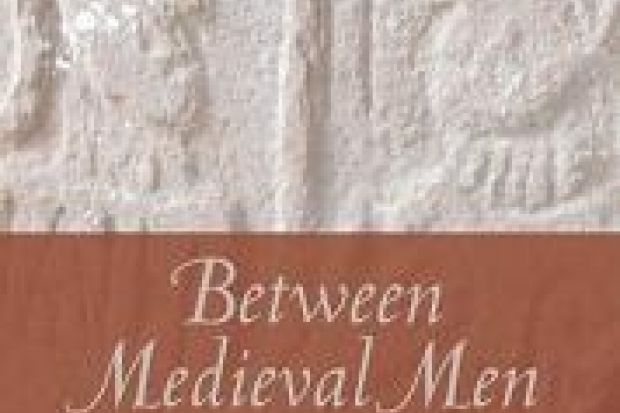When Robert Zemeckis' film adaptation of the Old English epic poem Beowulf hit the screens in 2007, some reviewers noted a distinct homoerotic undercurrent. There are the tender bonds that transpire among Beowulf and his muscly mates, of course; but queer readings were also fuelled by the camera's repeated ogling of the hero's computer-generated washboard physique. Against the backdrop of all that sizzling eroticism, when Beowulf fetches up at the hall of Hrothgar to battle the monster Grendel, Hrothgar's queen's announcement that "there have been many a brave soldier come to taste my husband's mead" contains its own potential for innuendo when viewed from a certain angle.
The question is whether the audience of the original poem would have filtered relations between men through such a sexualised lens. What were the attitudes of those living in England in the period before the Norman Conquest to expressions of love, desire, friendship and eroticism in all-male settings?
David Clark's smart, elegant and ambitious survey aims to set the record straight on Anglo-Saxon attitudes to male same-sex desire, not by straightening out the desires of the males in question (for instance, by desexualising them or showing how they actually conform to "heterosexual" social norms), but rather by demonstrating how early medieval discussions of relations between men were irreducibly more complex than visions of a "homoerotic" Beowulf may suggest.
Taking up the poem itself, indeed, Clark convincingly shows how an emotive passage in which Hrothgar expresses "secret longing" for Beowulf, prior to the hero's homeward journey after defeating Grendel, probably concerns Hrothgar's covert desire that Beowulf remain behind as his heir rather than his lover. For sure, homosocial bonds are invested with value in the poem; but in the last analysis this so-called "heroic society" is treated more ambivalently, reliant as it is on loners like Beowulf himself.
Admirably comprehensive, and taking in texts in Latin, Old Norse and even Greek as well as Old English, Clark's survey is grounded in the assumption that, on the quiet, Anglo-Saxons probably tolerated same-sex activity, especially in secular contexts, just so long as the activity wasn't exclusive and didn't threaten the subject's gender. Textual condemnations of same-sex desire do exist in the Old English corpus, but these necessarily bear the stamp of religious orthodoxy (the writings of churchmen were more likely to survive) and are mere fragments of a larger, more nuanced picture, which includes all kinds of same-sex relations on a continuum from the social to the erotic.
One example of a tendency towards ambivalence within religious contexts is the Anglo-Saxon take on Sodom, the city whose ghastly fire-and-brimstone fate is narrated in the Book of Genesis. Whereas selective interpretations of the episode continue, in the present, to argue that the sin of Sodom's inhabitants was homosexuality, Clark establishes definitively that almost every surviving pre-Conquest reference to the story implies that Sodom's prevailing vice encompassed some other practice, be it masturbation, non-procreative sex, inhospitable aggression or some more loosely defined concept of fleshly indulgence.
This in itself is not a revolutionary point: countering the anachronistic projection of concepts of homosexual identity on to a biblical and medieval past, several scholars have argued something similar, albeit often within less closely defined parameters. (Clark's language of early medieval "tolerance" is reminiscent of John Boswell.) But the great strength of Clark's analysis is his account of the Sodom narrative's reception in a particular cultural setting: even up until the 11th century, Anglo-Saxon churchmen tended to have more pressing things to worry about than the idea of men having sex with men. If Clark's argument is oriented, for the most part, towards a specialist audience of Anglo-Saxonists, his confirmation of this more diffuse, hazy, even "relaxed" attitude will surely have wider implications.
Between Medieval Men: Male Friendship and Desire in Early Medieval English Literature
By David Clark
Oxford University Press
240pp, £50.00
ISBN 9780199558155
Published 26 February 2009
Register to continue
Why register?
- Registration is free and only takes a moment
- Once registered, you can read 3 articles a month
- Sign up for our newsletter
Subscribe
Or subscribe for unlimited access to:
- Unlimited access to news, views, insights & reviews
- Digital editions
- Digital access to THE’s university and college rankings analysis
Already registered or a current subscriber? Login
